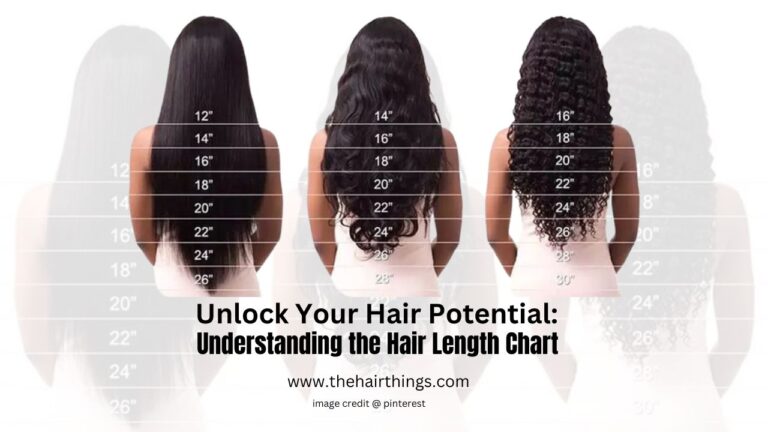Do you long for thick, long hair that falls down your back with ease? It’s not difficult to get the thick, Rapunzel-esque hair you’ve always wanted. It needs commitment, consideration, and the appropriate procedures. We’ll go over eight key suggestions in this thorough guide to help you grow your hair long and strong, whether you want quicker results or you’re an older lady with particular hair demands.

Nourishing Your Scalp for Strong Roots

Your scalp is the starting point for the path to healthy, long hair. A healthy scalp lays the groundwork for strong hair development. Use moderate circular strokes to massage your scalp on a regular basis. This improves blood flow, which helps nourish hair follicles with vital nutrients. Consider applying natural oils like coconut or argan oil to your scalp to further improve its health. These oils speed up hair development by strengthening hair follicles from the roots as well as moisturizing the scalp.
A Balanced Diet for Hair Health

Your nutrition has a significant impact on your hair’s health, which is a reflection of your general health. Include foods high in vitamins, minerals, and proteins in your daily meals to promote hair development. Leafy greens, eggs, and almonds are all healthy options. Frequently present in eggs, biotin aids in strengthening hair, and zinc in nuts encourages hair development. Iron is abundant in leafy greens like spinach, which helps to maintain healthy hair follicles.
Gentle Handling and Heat Protection

Excessive heat styling and harsh treatment can lead to hair damage and breakage. To keep your hair long and strong, opt for heat-free styling methods whenever possible. When heat styling is necessary, always use a heat protection product to shield your hair from the damaging effects of high temperatures. Additionally, avoid tight hairstyles like high ponytails or braids that place undue stress on the hair shaft, as this can lead to breakage.
Regular Trims for Hair Longevity

It might seem counterintuitive, but regular trims are essential for maintaining long and strong hair. Trimming your hair every 8-12 weeks helps remove split ends, preventing further damage and breakage. While this may seem to slow down your hair growth progress initially, it ultimately leads to healthier and more durable locks.
Hydration is the Key

Like your body, your hair needs enough water to keep healthy and strong. Invest in a top-notch moisturizing shampoo and conditioner to keep your hair at its ideal moisture level. Consider including a deep conditioning treatment in your weekly schedule as well. Drink enough of water to keep yourself hydrated from the inside out so that your hair gets the moisture it need.
Avoid Harsh Chemicals

Your hair’s health can be significantly affected by the hair care products you choose. Choose sulfate-free, natural shampoos and conditioners. Some hair products contain harsh chemicals that can strip your hair of its natural oils, causing dryness and brittleness. Your hair’s strength and shine are maintained with the aid of gentle, natural products.
Protect Your Hair from Environmental Damage

Your hair might suffer from environmental causes like wind, pollution, and sun exposure. When you’re outside in the sun, think about donning a wide-brimmed hat to protect your locks from these elements. Use a hair spray that serves as a shield against environmental harm as an alternative. These measures can dramatically lessen damage to your hair, allowing it to develop into long, healthy hair.
Be Patient and Consistent

Growing long and strong hair is not a sprint; it’s a marathon. Patience and consistency are your best allies on this journey. While you may not see immediate results, adhering to a dedicated hair care routine will yield positive outcomes over time. Remember that every individual’s hair growth rate is unique, so stay focused and remain committed to your hair goals.
Growing Your Hair Long and Strong Fast

There are a few additional methods to think about if you want to quicken hair development. First, think about employing vitamins and minerals for hair development supplements. Folic acid, biotin, and vitamin E are all known to promote healthy hair development. However, get medical advice before beginning any supplementation.
Investigate specific hair care products made to promote growth as an alternative strategy. Caffeine is a common element in these products, which can stimulate hair follicles. But make sure you do your homework and pick reliable products.
Growing Your Hair Long and Strong for Aged Women

Our hair experiences changes as we become older, such as thinning and less flexibility. Older ladies who want their hair to be strong and long might modify the aforementioned advice to suit their demands. To reduce breakage, treat your hair with additional gentleness and use treatments made for senior hair. A dermatologist or trichologist may be able to provide you with specialized guidance and therapies suited to your particular hair issues.
Conclusion

In conclusion, maintaining long, healthy hair is a journey that demands commitment and care. You can promote a healthy scalp, hydrate your hair from the inside, and shield it from environmental harm by implementing these eight suggestions. These techniques can help you get the long, strong locks you want, whether you want rapid development or are an older lady with special demands. Keep in mind that your best partners on this road to growing out your hair are patience and consistency.
FAQs

FAQ 1: How long does it typically take to see results in hair growth?
Answer: Each person’s pace of hair growth is unique. Hair typically grows six inches (15 cm) every year, or 1.25 inches (0.5 cm) per month. Individual characteristics including genetics, food, and general health can, however, affect this rate. In around 6 to 12 months, with continuous care and good habits, you should start to notice benefits.
FAQ 2: Can I speed up the process of growing my hair long and strong?
Answer: Yes, there are methods for promoting quicker hair growth. The health of your hair can be supported by a well-balanced diet full of necessary nutrients and by taking supplements like folic acid and biotin. Supplements and specialty hair care items created to encourage growth can also be useful. However, it’s crucial to speak with a medical expert before beginning any new supplements.
FAQ 3: How often should I trim my hair to promote growth?
Answer: Regular trims are crucial for maintaining healthy hair, but they don’t necessarily directly speed up growth. Trimming every 8-12 weeks helps prevent split ends and breakage, which can hinder growth progress. By keeping the ends healthy, you’re allowing your hair to reach longer lengths without constant setbacks.
FAQ 4: What hair care practices should aged women adopt for long and strong hair?
Answer: Aged women may have specific hair concerns due to factors like hormonal changes and reduced elasticity. It’s crucial to be gentle with your hair, avoiding harsh styling and chemical treatments. Use products specifically designed for mature hair to address its unique needs. Consulting a dermatologist or trichologist for personalized advice is also recommended.
FAQ 5: Are there any natural remedies that can help with hair growth?
Answer: Yes, natural remedies can complement your hair care routine. For example, applying natural oils like coconut or argan oil can nourish the scalp and strengthen hair. Aloe vera, known for its soothing properties, can also promote a healthy scalp environment. Keep in mind that while natural remedies can be beneficial, they work best as part of a comprehensive hair care routine.








